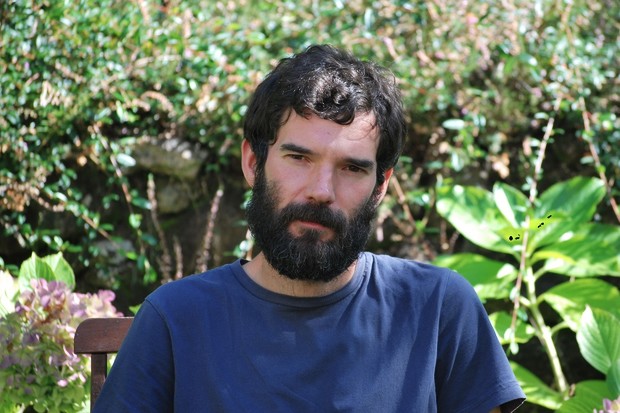Ángel Santos • Director
“We look at scenery from a cinephile persepctive”
- Following its debut at Busan and Seville, The High Pressures by Ángel Santos touches down. The intimate and geographical journey of a wandering man

Ángel Santos made his debut in 2011 with feature film -Dos fragmentos/Eva- following an interesting career as a short film-maker. His second movie, The High Pressures [+see also:
film review
trailer
interview: Ángel Santos
film profile], screened in the New Waves section of the 11th Seville European Film Festival, takes the baton from other Galician directors, holders of a unique landscape perception.
Cineuropa: For some time now we've been hearing about up-and-coming Galician cinema. Does this current really exist or is it just a series of coincidences?
Ángel Santos: We're proud of what's happening in Galicia, because it feels very real to us. We all know each other: Lois Patiño was here in Seville last year with Coast of Death [+see also:
film review
trailer
interview: Lois Patiño
film profile]; the previous year, Eloy Enciso with Arraianos [+see also:
trailer
interview: Eloy Enciso and Carlos Esbert
film profile] and there are others, so there’s a movement and a connection: in general we work from non-fiction, we have regular contact, we went abroad to study, we returned and we try to view landscape from a cinephile perspective.
So does Galicia have a distinctive responsiveness to film?
The circumstances encourage it: there’s the taste for landscape, open spaces and that existential romanticism. Yes, I think there might be a shared responsiveness and a search: we ask ourselves where we came from and why we’re given to introspection.
Why are you so attached to non fiction? Even if your movie breaks away slightly from the documentary genre...
I really like fiction but sometimes people are afraid of venturing into it. Some projects are cheaper to do in non-fiction: that's also a sign of the times. I don't mind one or the other, but I enjoy narration: trying to create a story; I also enjoy the connection with spaces, so there’s a quasi documentary way of looking at things in my movie: it's not a closed fiction.
The protagonist of The High Pressures, played by Andrés Gertrúdix, represents the modern day wandering man.
I always base myself on the frankest of intimacy, by showing what it is I feel: the character possesses many traits of people I know. I like the concepts of wandering and looping, of moving towards a centre point.
The idea of always being late, certainly a very common vice, is also interesting...
It's not knowing how to answer on time, not having the impulse to act when you should and, all of a sudden, at a point in your life, you make decisions, even if it's at the wrong time: it's a reflection of masculinity. I also liked that the protagonist might say something silly or put his foot in it.
Throughout the movie we see abandoned factories; they too are a reflection of the social situation we are experiencing...
There's nothing random in Las altas presiones: the movie came about in response to questions that you ask yourself about your job, but also in response to the conversations of recent years, with the ever-present notion of the crisis. We wanted to work on that idea of society and on how to link artistic creation with the working world and the destruction of small industry in that region of Galicia: that was to be the undercurrent in the film.
(Translated from Spanish)
Did you enjoy reading this article? Please subscribe to our newsletter to receive more stories like this directly in your inbox.
















